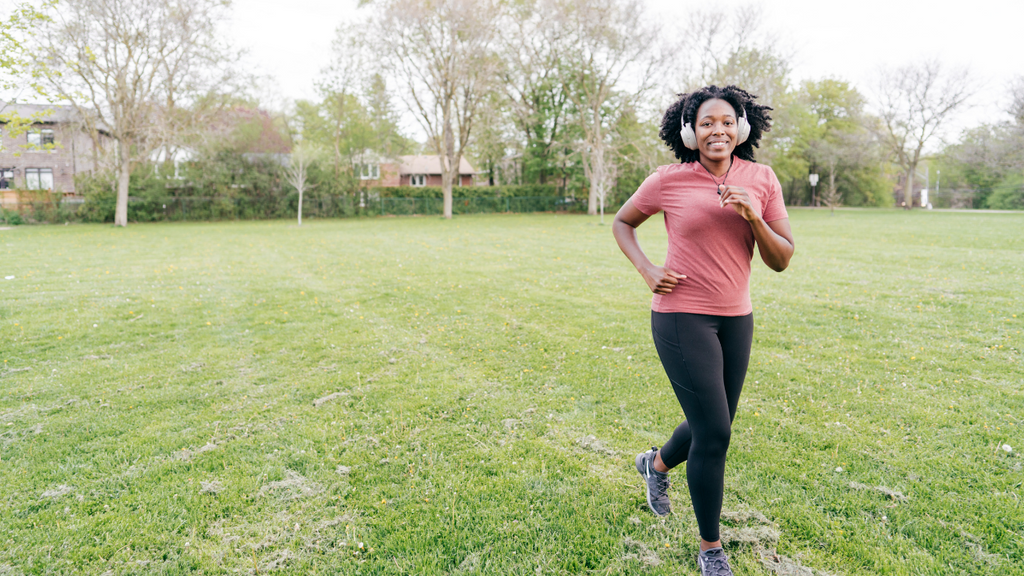Read Time: 5 min | Categories: Mental Health and Sleep | Joint Health
Can Joint Pain Be Caused by Stress?
Patience Lister, BSc
Share this article
It’s no coincidence that your knee pain flares up after a tough work week or your neck becomes extra tender when you’re facing a major life change.
You may have heard that stress can be harmful to your physical health, but did you know that it can affect your joints? Stress can negatively affect your joints, especially if you have an existing joint condition or rheumatoid arthritis. [1]
The Connection Between Stress and Joint Pain
We all experience moments of stress as a normal reaction to everyday pressures. But when left unchecked, heavy or long-term stress can overwhelm your body’s ability to cope, leading to low-grade inflammation and tissue changes in the body. Because stress and chronic pain are interconnected, one can often lead to the other, creating a stress-pain cycle. [2]
Emotional Stress Causes Joint Pain
If you have an existing joint condition, stress-induced inflammation can trigger painful flare-ups. A study on rheumatoid arthritis patients found that mental stress and mood disorders were the most common cause of relapse in patients’ pain symptoms. [1]
The relationship between stress and inflammation is a key factor in many joint pain conditions, including: [3]
- Osteoporosis
- Rheumatoid arthritis
- Temporomandibular joint dysfunction
- Fibromyalgia
Joint Pain Causes Stress
Not only does stress cause joint pain, but joint pain causes stress. Research shows that people with joint pain often experience extreme stress because they worry about their pain, their treatments, and the burden their condition puts on people around them. In other words, the fatigue and disability of joint pain is stressful. [4]

How Does Stress Trigger Joint Pain?
Stress can trigger joint pain (especially if you have rheumatoid arthritis) by setting off the immune system’s inflammatory response. When this happens, signalling chemicals called cytokines are released by the body. Cytokines play an important role in inflammation and can increase the severity of cartilage destruction and arthritis symptoms. [1]
The greater a person’s exposure to stress, the greater their inflammation becomes, which can in turn interfere with mood and mental processes.Even at low levels, long-term stress interferes with the body’s cortisol production, impairing the brain’s natural stress response and ability to cope. [4]
Break the Stress-pain Cycle
There are many steps that you can take to break the cycle of stress and joint pain.
 Ways to Manage Stress
Ways to Manage Stress
No matter what triggers your stress, leaving it unaddressed for extended periods is bad for your health and can exhaust your body’s stress-coping systems. The following healthy lifestyle habits, along with stress-reducing activities, can help set the foundation for managing stress:
- Catch more ZZZs. Did you know that 36% of Canadian adults have trouble sleeping when they’re stressed? [6] By getting the recommended 7–9hours of sleep per night, you’ll give your brain time to repair and replenish its cells so you can wake up more refreshed. [7]
- Exercise daily. Research shows that exercise relieves stress. Even a simple walk can help lower levels of the stress hormone cortisol. [7] Walking, bicycling, swimming, and using an elliptical machine are all great joint-friendly exercises for relieving stress and easing arthritic pain. [8] Stretching before bed can also help you relax and get a better night’s rest. [9]
- Nourish your brain. Keep your energy levels up and mood stable with regular nourishing meals that include fresh fruits and vegetables, whole grains, lean proteins, and healthy fats, such as foods rich in omega-3. Be sure to get enough magnesium, which is needed to help relax tense muscles, and B vitamins to support a healthy nervous system. [10]
- Limit caffeine and alcohol. Caffeine can add to feelings of nervousness, while alcohol can worsen sources of stress and interact with pain medications. Limiting your intake of both is a good idea when you’re feeling stressed. [12]
- Schedule down time. Engaging in relaxing activities, such meditation and deep-breathing exercises, listening to music, and connecting with family and friends can help foster a healthy, calm mindset.
 Ways to Manage Joint Pain
Ways to Manage Joint Pain
Don’t let the pain or stress of tender, inflamed joints keep you from enjoying your favourite activities. To help manage your pain, talk to your doctor about joint pain therapies and choose food and supplements that nourish and reduce inflammation in joint tissue. Some well-researched, joint-friendly ingredients include:
- Glucosamine and chondroitin are natural components of the cartilage in joint tissue, but our levels of both decline steadily as we age. Replenishing glucosamine levels through supplementation helps stimulate the growth of cartilage cells and has been shown to slow osteoarthritis damage. [13] By attracting water and nutrients into joint cartilage and protecting it from further damage, chondroitin can be taken to reduce osteoarthritic pain. [14]
- Turmeric is traditionally used in herbal medicine to relieve inflammation and is a source of antioxidants called curcuminoids. By interfering with inflammation, extract from this vibrant yellow root has been found to reduce joint pain and make movement easier for people with arthritis. [15]
- Omega-3 fatty acids eicosapentaenoic acid (EPA) and docosahexaenoic acid (DHA) found in cold-water fish and fish oil or microalgae supplements are known for supporting healthy inflammatory response in the body. Research shows that a regular intake of omega-3s through daily supplementation, or eating fish two or more times per week may help people with inflammatory conditions manage swollen, tender joints. [16]
- Collagen is a major protein in the body, and a critical building block for the connective tissue within joints. As we age and collagen production goes down, our joints become less resistant to the high impact stress and force of physical activity can have on them. Supplementing with collagen peptides has been shown to support joint function by improving joint pain and stimulating joint tissue repair. [19]
Stress-free Joints
The relationship is clear – stress and joint pain are connected. Understanding how your reaction to everyday stressors affects your joints is the first step to managing painful symptoms. Building ways to manage stress into your routine can help break the stress-pain cycle so that you can keep moving and enjoy taking part in the activities you love.
